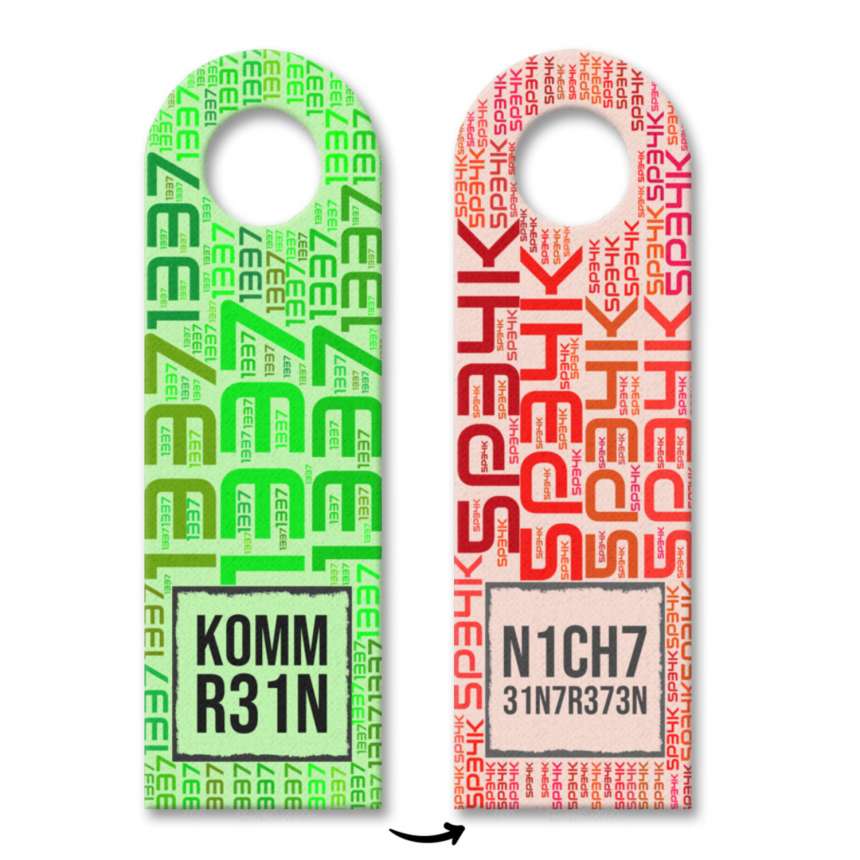
alphanumeric and symbols) require less extensive forms when used in this application.
1337 SPEEK PASSWORD
Limitations imposed by websites on password length (usually no more than 36) and the characters permitted (e.g. Another use for leet orthographic substitutions is the creation of paraphrased passwords. However, this practice is not extensively used in regular leet more often it is seen in situations where the argot (i.e., secret language) characteristics of the system are required, either to exclude newbies or outsiders in general, i.e., anything that the average reader cannot make sense of is valid a valid reader should themselves try to make sense, if deserving of the underlying message. The choice of symbol is not fixed: anything the reader can make sense of is valid. For more casual use of leet, the primary strategy is to use homoglyphs, symbols that closely resemble (to varying degrees) the letters for which they stand.

One of the hallmarks of leet is its unique approach to orthography, using substitutions of other letters, or indeed of characters other than letters, to represent letters in a word. Signs that show the numbers "1337" are popular motifs for pictures and are shared widely across the Internet. Leet symbols, especially the number 1337, are Internet memes that have spilled over into popular culture. "Hacker" would end up as "H4x0r", for example. This enables coders and programmers especially to circumvent filters and speak about topics that would usually get banned. Variants of leet have been used for censorship purposes for many years for instance (ass) and "$#!+" (shit) are frequently seen to make a word appear censored to the untrained eye but obvious to a person familiar with leet. It is also sometimes used as a scripting language. More obscure forms of leet, involving the use of symbol combinations and almost no letters or numbers, continue to be used for its original purpose of encrypted communication. Some consider emoticons and ASCII art, like smiley faces, to be leet, while others maintain that leet consists of only symbolic word encryption. It is now also used to mock newbies, also known colloquially as n00bs, or newcomers, on websites, or in gaming communities. Once reserved for hackers, crackers, and script kiddies, leet has since entered the mainstream. Creative misspellings and ASCII-art-derived words were also a way to attempt to indicate one was knowledgeable about the culture of computer users. One theory is that it was developed to defeat text filters created by BBS or Internet Relay Chat system operators for message boards to discourage the discussion of forbidden topics, like cracking and hacking. The Cult of the Dead Cow hacker collective has been credited with the original coining of the term, in their text-files of that era. Leet originated within bulletin board systems (BBS) in the 1980s, where having "elite" status on a BBS allowed a user access to file folders, games, and special chat rooms. The leet lexicon includes spellings of the word as 1337 or leet. The term "leet" is derived from the word elite, used as an adjective to describe skill or accomplishment, especially in the fields of online gaming and computer hacking. There are many dialects or linguistic varieties in different online communities. Additionally, it modifies certain words based on a system of suffixes and alternate meanings. It often uses character replacements in ways that play on the similarity of their glyphs via reflection or other resemblance.
Leet (or " 1337"), also known as eleet or leetspeak, is a system of modified spellings used primarily on the Internet. An "31337 H4X0R" (elite hacker) laptop sticker, along with a Kevin Mitnick sticker


 0 kommentar(er)
0 kommentar(er)
